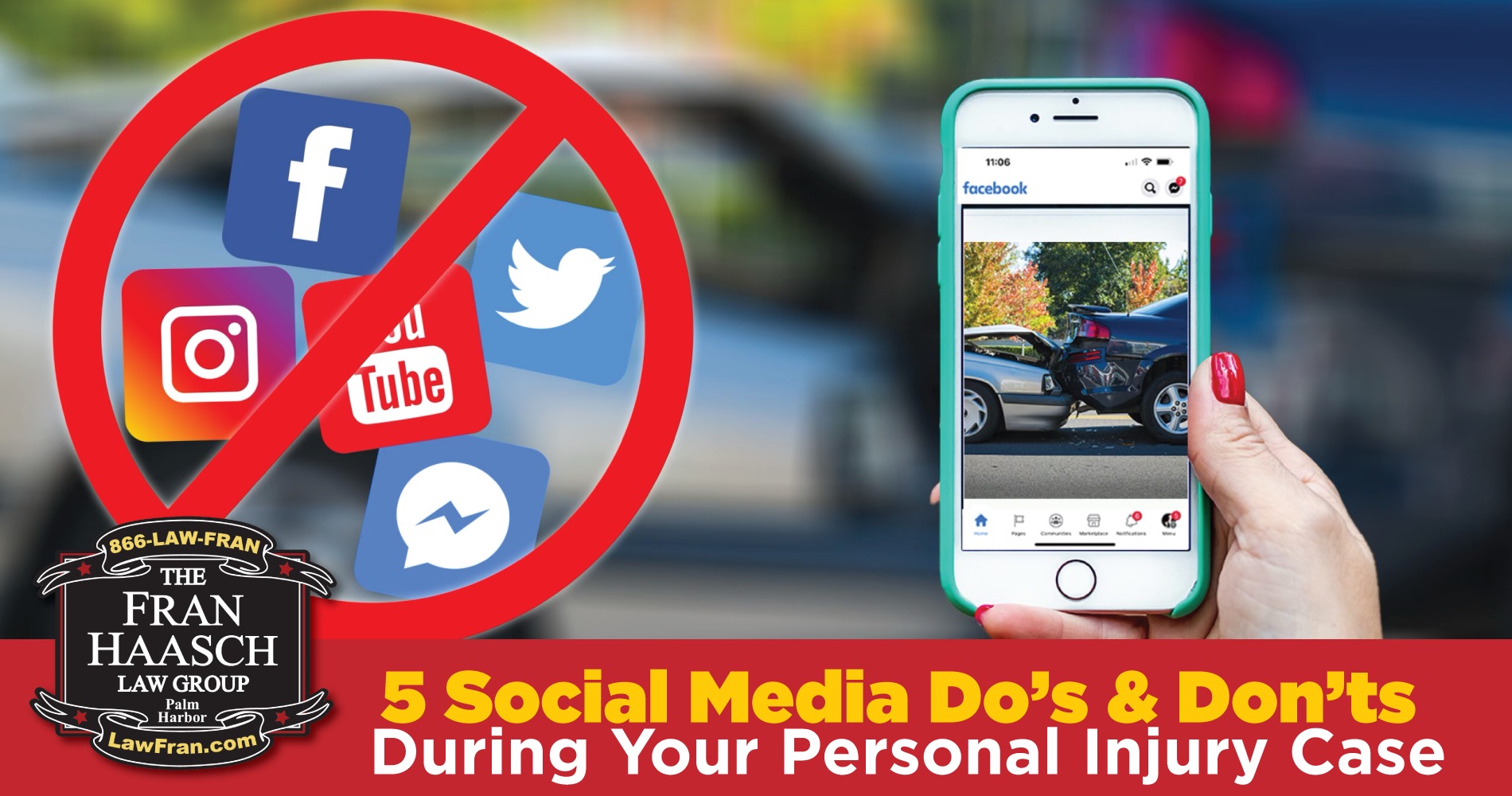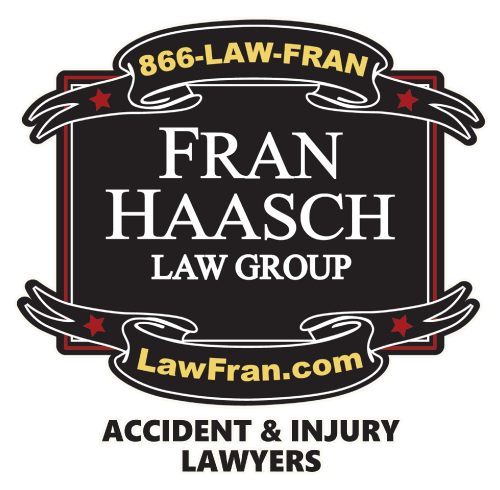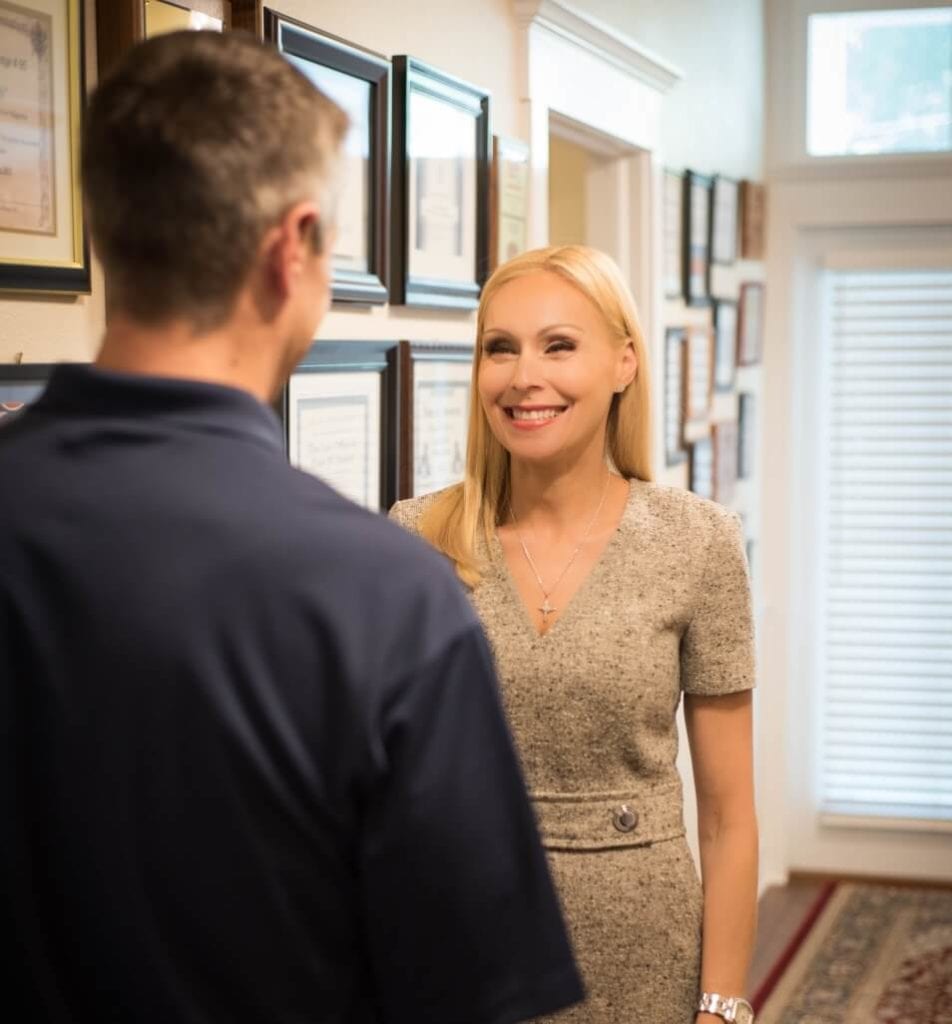We’ve all heard the cliche, “looks can be deceiving.” Nowhere is this more relevant than on social media sites. The way we portray ourselves online can differ vastly from our day-to-day reality. Usually, this difference isn’t a big deal, but if you are pursuing a personal injury claim, it can compromise your entire case.
Anything you post on Facebook, Twitter, and other social media sites can easily be misinterpreted by insurance adjusters and opposing counsel and misrepresented to a judge or jury. If you have questions about using social media during your personal injury lawsuit, contact your attorney at The Fran Haasch Law Group.
How Can Social Media Use Hurt Your Personal Injury Claim?
One of the biggest dangers of social media is that anything you post can be used against you in court. This includes not only posts about your accident or injury but also posts about unrelated topics! For example, if you’ve filed a car accident injury claim, but you post about your weekend plans, what you’re doing for lunch, or a vacation you’re going on, this can be used to show that you are not as injured as you claim to be.
Additionally, social media is a great way for insurance companies to snoop around and try to find dirt on you. They may look through your posts, photos, and even your private messages to find something they can use against you. To play it safe, let’s look at some important dos and don’ts of social media etiquette during your case:

5 Social Media Best Practices During a Personal Injury Case
1. Don’t: Make Your Accounts Public
While it may be tempting to make your social media accounts public so that everyone can see what you’re up to, this is a huge mistake if you pursue a personal injury claim. Remember, anything you post online can be used against you in court. Making your accounts public gives the insurance company free rein to snoop around and find anything they can use against you.
2. Don’t: Talk About Your Case Online
Even if your social media accounts are private, you should still be careful about your posts. Remember, insurance companies may still try to access your accounts if they think there is information that could help their case. If you are unsure whether or not something is appropriate to post, it is always better to err on the side of caution and keep it to yourself.
Here are some general guidelines for what you should avoid posting online:
- Any information about your accident or injury
- Photos of your injuries
- Posts about your physical or mental health
- Updates on your legal case
- Conversations with your lawyer
3. Do: Monitor Your Accounts Closely
Monitor your accounts closely. This way, you can catch any mistakes you make and avoid making them in the future. Additionally, monitoring your accounts closely will help you spot any attempts by insurance companies to snoop around or contact you directly.
4. Do: Consider Pausing Your Social Media Accounts
It might be a good idea to hit the pause button on your social media accounts while your personal injury case is ongoing. This will help ensure that you don’t accidentally say or do something that could jeopardize your case.
5. Don’t: Accept Friend Requests From Strangers
Be cautious about who you let into your social media circle. Insurance companies and defense attorneys go to great lengths to find what they can to invalidate your claim and they may try to access your posts by sending you a friend request from a fake profile. If you’re unsure about someone, it’s best to ignore the request.
Contact a Personal Injury Attorney Today
These valuable do’s and don’ts come from the desk of Fran Haasch herself, and all our clients must agree to our social media policy before we represent them.
At The Fran Haasch Law Group, we are committed to fighting for your fair recovery. We strive to help injured individuals and the loved ones of those wrongfully killed secure the full, fair recovery they are owed. We offer dedicated legal representation for accident victims in various personal injury cases.
Our attorneys are prepared to help you navigate the legal process and work toward securing the maximum compensation you are owed. To work with an attorney who understands the modern world and truly has your best interest at heart, call (727) 784-8191 or contact us online to get started on receiving maximum compensation for your personal injury case.














